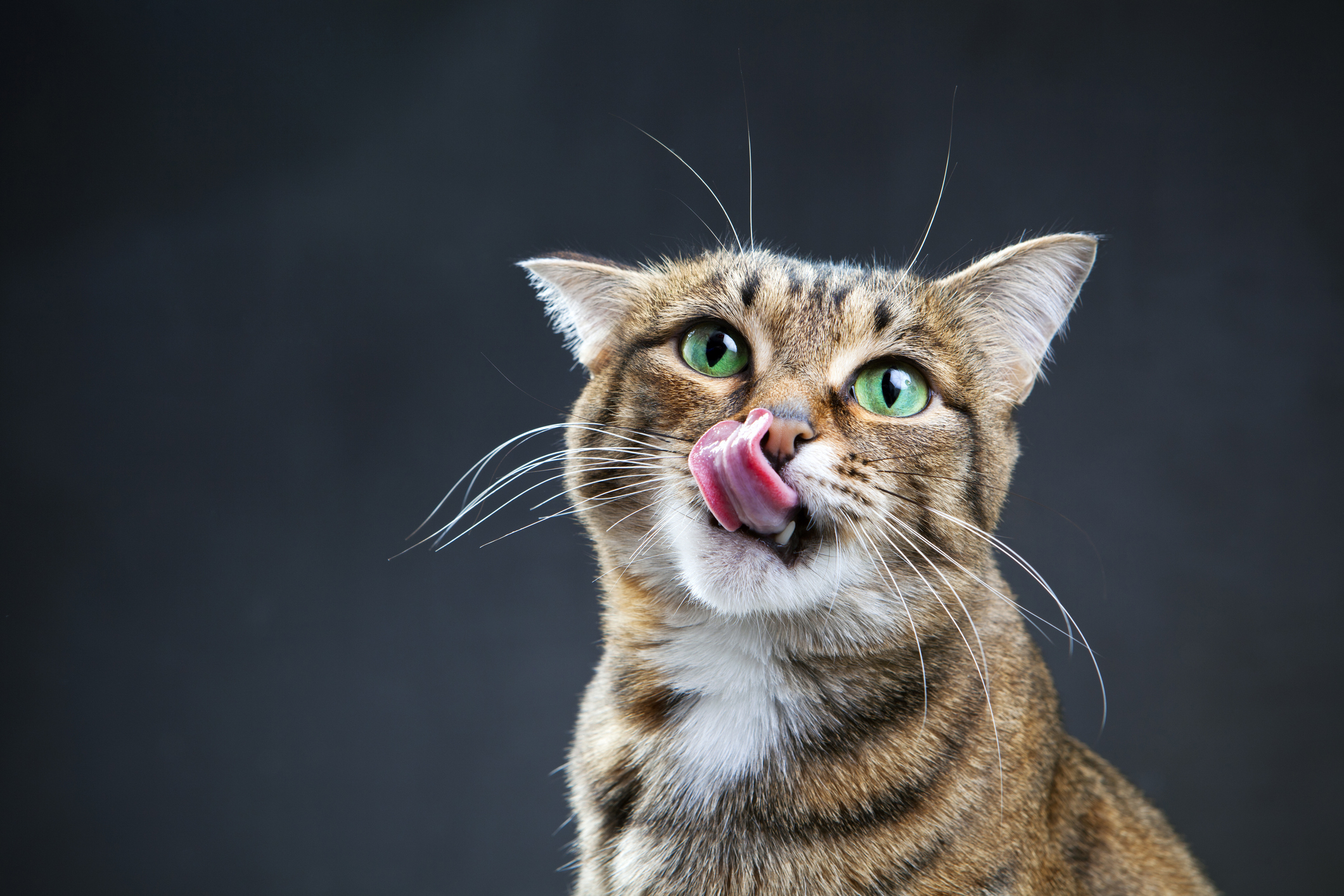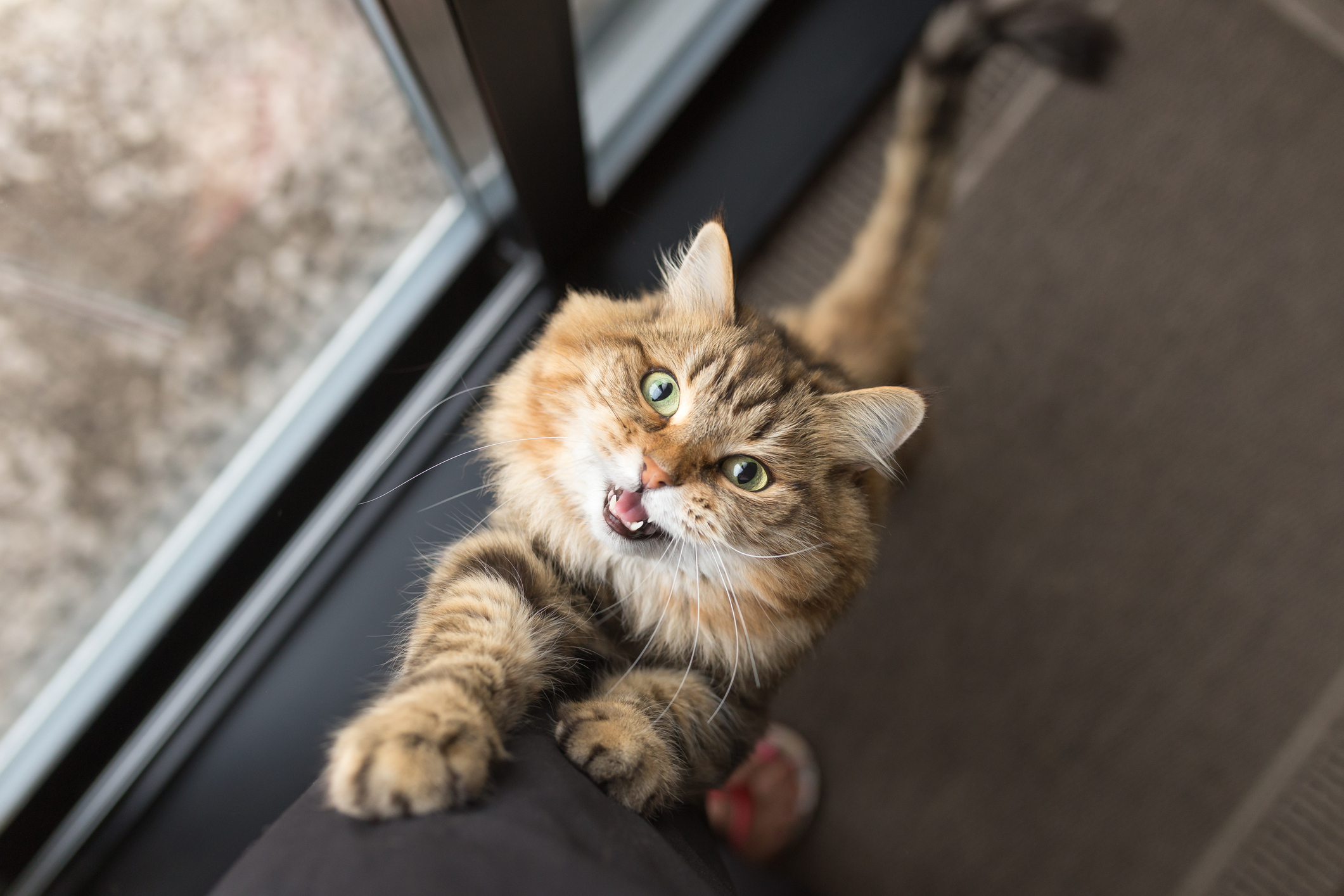
What to Do If Your Cat Is Always Hungry
Most cat owners know how vocal cats can be about food. When it’s mealtime, your cat might turn into a furry alarm, meowing and crying and even climbing all over you to signal that they’re ready to eat. But what happens if after you feed your pet, their cries for food don’t stop? Or if they continue to beg for food, lounging near their bowl or food container all day?
Incessant hunger in cats is not necessarily normal—it could be caused by a need for attention, but it could also be a sign of an underlying health problem. Cats with ravenous appetites should be monitored for other symptoms and examined by a vet, just in case.
6 reasons your cat might be hungry

There are a number of different reasons your cat might appear to be extremely hungry. Some are behavior related, while others are due to a serious illness or health condition.
- Being underfed: Do you know how much your cat should be eating? A cat’s daily diet should be based on their weight, age and activity level. If your cat appears hungry all the time and is losing weight while staying active, you might not be feeding them enough! Check in with your vet to determine how many calories your cat should have each day. Also check on the nutritional makeup of the food, so they’re getting all the nutrients they need.
- Routine change: Some pet owners free choice feed their cats with no measured meals but switch when they realize their cat is gaining weight. This switch from free-choice feeding to measured meals might cause a cat to announce their hunger and protest, since they’re used to eating whenever they want!
- Hyperthyroidism: A ravenous appetite is one of the most common symptoms of hyperthyroidism in cats—a disease that causes an excess of thyroid hormone in your cat’s body. This ramps up your cat’s metabolism, causing them to burn through energy too quickly. Hyperthyroidism commonly causes extreme hunger, rapid weight loss, excessive thirst and a poor-looking coat.
- Diabetes: Cats with diabetes don’t have enough insulin—a hormone that allows cells to take up sugar in the blood and use it for energy. This often causes an increased appetite, since the body thinks it needs more food. In addition to having a ravenous appetite, cats with diabetes will often experience weight loss, increased thirst and increased urination.
- Worms: Intestinal parasites like roundworms and tapeworms might also be to blame for your cat’s increased appetite. Your cat would have to have quite a lot of worms for their appetite to be affected, but the worms can use up or block the nutrients your cat is getting through food, leaving the body starving for more. Cats with worms may lose weight, vomit or have diarrhea, have a poor coat and have worms visible in their stool.
- Attention: Cats that are bored, lonely or want attention might also cry after they’ve eaten, leading owners to think they want more food. If they aren’t getting enough exercise or enrichment, they might whine and beg nonstop, all while gaining weight.
If your cat is acting like they haven’t been fed in days, consider the following:
- Are they using the litter box/passing urine and feces normally?
- Are they gaining or losing weight?
- Are they active or lethargic?
- Are they displaying any other symptoms?
The answers to these questions can help you and your vet get to the bottom of your cat’s potential health problems. A cat that is hungry, losing weight and displaying other symptoms of illness probably has an underlying condition, while a cat that’s gaining weight but is otherwise healthy might have a behavioral issue. It’s best to check in with your vet to make sure your cat is healthy through a blood and urine test.
How to deal with a begging cat

Sometimes, cats don’t have any particular reason for their relentless begging—they just want more tasty food! If you’ve been to the vet to check for illnesses with no results, your cat might just be begging to beg. In this case, it’ll be up to you to stay firm and make sure your cat does not learn bad behavior through rewards.
Check with your vet to see how much food your cat should be eating each day. Then, make a feeding schedule based on that amount and stick to it! Don’t reward your cat’s whining and begging with extra kibble or treats. In fact, it’s best to ignore your cat’s begging altogether, so they aren’t rewarded with attention.
If you think your cat is begging because they are bored or lonely, work on adding extra enrichment into their life. Provide new toys or perches where they can sit and watch wildlife and schedule daily playtime. They might even appreciate a puzzle feeder that dispenses pre-portioned food as they play, elongating feeding time with some extra stimulation.
By paying attention to your cat’s relationship with food, you can spot the early signs of illness and make sure they maintain a healthy weight year over year.


